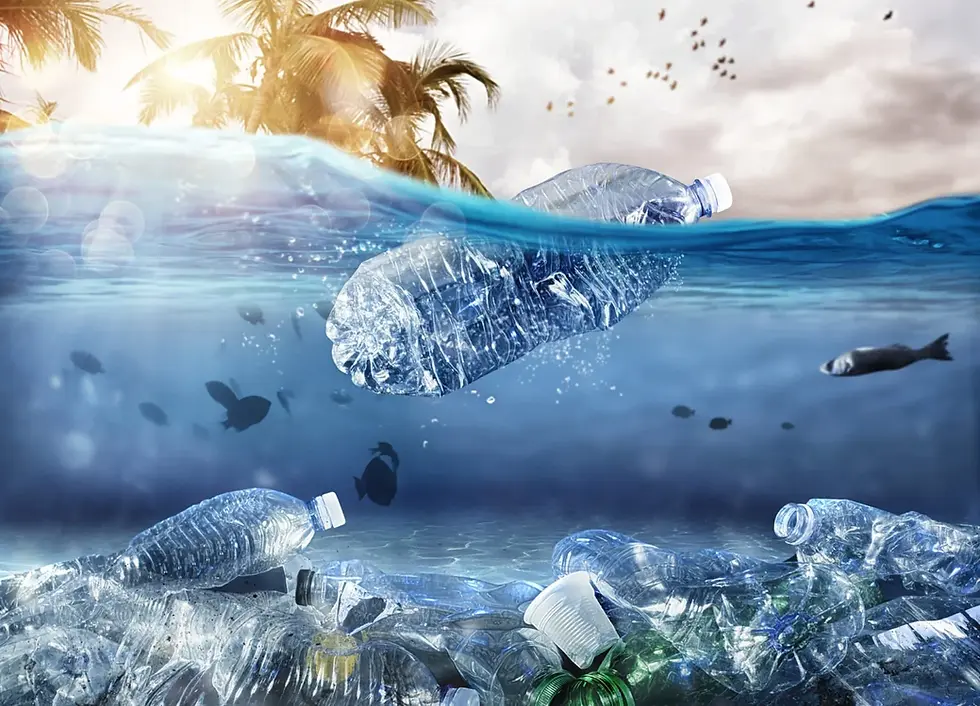Hidden in Plain Sight: How Microplastics in Our Brains Expose the Urgent Need for Sustainable Solutions
- Plastech Inc.

- Feb 6
- 2 min read
Updated: Jul 22
![[Images: kodochigov/Adobe Stock, dottedyeti/Adobe Stock]](https://static.wixstatic.com/media/80da39_7967f0ba37f3481fa0ec33cd28f31060~mv2.png/v1/fill/w_980,h_552,al_c,q_90,usm_0.66_1.00_0.01,enc_avif,quality_auto/80da39_7967f0ba37f3481fa0ec33cd28f31060~mv2.png)
Welcome back to One Less Bag! Today, we discuss a shocking new study that reveals microplastics have infiltrated human brains, with even higher concentrations found in individuals diagnosed with dementia. This unsettling discovery forces us to face a harsh reality—plastic pollution isn’t just an environmental issue; it’s a direct threat to human health. As we uncover the implications of this research, we also explore the solutions that Plastech is pioneering to combat plastic waste and protect our future.
According to a preprint in the National Library of Medicine, this study has revealed something alarming—microplastics are not just polluting our oceans and food supply; they have now been found in human brains, with even higher concentrations in individuals diagnosed with dementia. This discovery raises urgent questions about the long-term health effects of plastic exposure and forces us to confront a harsh reality: plastic is invading our bodies, and the consequences could be dire.
At Plastech, we have been sounding the alarm about plastic pollution for years. But this latest research is more than just another environmental concern—it’s a stark reminder of why our work is so critical. Our products are not just alternatives to plastic; they are solutions to a crisis that is unfolding in real-time. Unlike traditional plastics, which break down into microplastics that infiltrate our air, water, and even our bodies, Plastech’s products are 100% home compostable and leave no harmful trace behind.
The mass production of plastic has outpaced our ability to manage its waste, and now we’re seeing the effects on human health. Scientists have long warned that microplastics are accumulating in our bloodstream, organs, and even placentas, but finding them in the brain brings a whole new level of concern. These tiny particles can bypass our natural defenses, potentially leading to inflammation, cognitive decline, and other neurological disorders.
This isn’t just an issue for future generations—it’s happening now. And the solution isn’t simply better recycling programs or banning plastic straws. We need a full-scale shift away from plastic toward materials that decompose naturally and safely. That’s exactly what we do at Plastech. From compostable garbage bags to food packaging and shipping materials, we provide sustainable alternatives that don’t just replace plastic but eliminate the need for it entirely.
Every purchase, every policy shift, and every informed decision matters. The presence of microplastics in human brains should be a wake-up call for industries, governments, and individuals alike. We can no longer afford to ignore the damage that plastic is causing—not just to the planet, but to our very biology.
Plastech is committed to leading this change. The fight against microplastic pollution isn’t just about cleaner oceans or greener packaging; it’s about protecting our health, our children, and our future. The time to act is now.



Comments